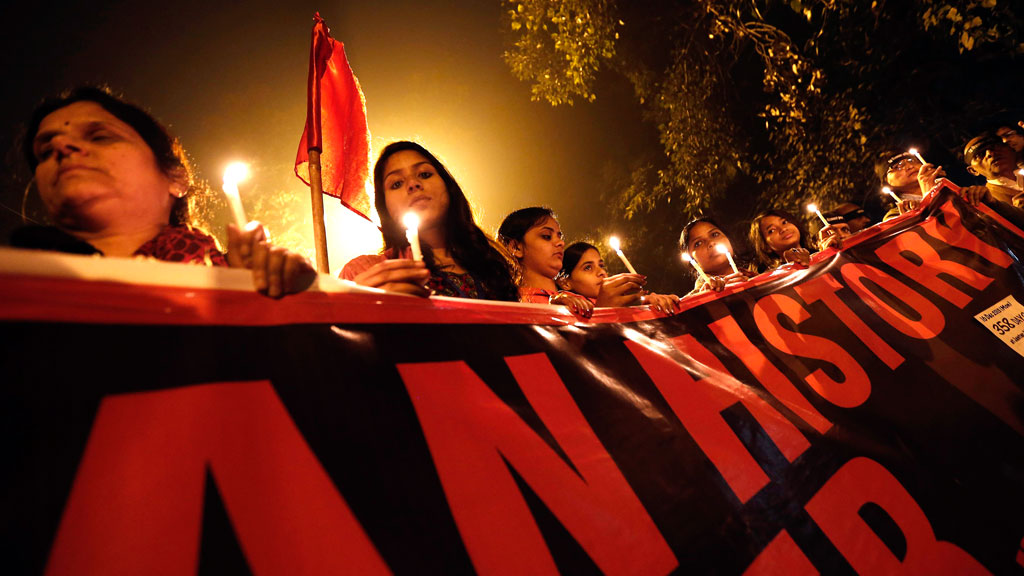To be or not to be India’s Daughter?
On the occasion of International Women’s Day, NDTV, India’s largest English news channel, was due to broadcast British filmmaker Leslee Udwin’s documentary India’s Daughter. The film is based on the brutal murder and gangrape of a 23-year-old physiotherapy student, Jyoti Singh also known as Nirbhaya which means ‘The Fearless One’.
The 2012 incident shocked the world and Delhi was dubbed as ‘The Rape Capital of India’. Rape was a widespread problem before Nirbhaya, but this case was too close to home for the city’s urban middle class.
Thousands of angry protestors took to the streets across the country and demanded better measures to protect women, activists demanded amendments to the rusty laws and camera teams fed the nation 24×7. A revolution had begun and the silence had been broken.
People started talking about rape and sexual assault. This opened up Pandora’s box, and out came issues like female foeticide, gender bias, dowry deaths. The patriarchal mindset embedded deep in the society was questioned. Activists rolled up their sleeves and launched awareness campaigns with a new-found energy.
India’s daughters came together in solidarity, they held hands and pledged ‘Enough is enough’. India’s daughters who have been disrespected for generations decided that it was time to take back the respect that was rightfully theirs. India’s daughters found their voices again and become bolder. India’s daughters have declared a war on patriarchy.
I believe #IndiasDaughter is a fair, balanced film – looks at the tragedy from the perspectives of the victim, the criminals, the society!
— Aseem Chhabra (@chhabs) 5. März 2015
Udwin’s film documents this revolution. Udwin film also showcases a scoop, an interview with one of the convicted rapists in Nirbhaya’s case. The ‘derogatory remarks’ contained in this interview led the Indian government to ban the film. The remarks allegedly tarnish India’s image, they also display the ignorance and the illogical justification of the patriarchal beliefs embedded deep in our society.
@IndiasDaughter is a true reflection of our society’s medieval thinking. We just cant turn a blind eye to this ever present problem.
— Rajaselvam (@rajaselvam13) 6. März 2015
It is an ethical issue, some say, because the convicted rapist is still appealing his conviction and the case is pending at the Supreme Court of India. Then there are others who feel that the documentary glorifies the rapist.
Why should V b interested in knowing d psyche of a rapist who hs raped & killed an innocent girl.?Nobody cn justify crime.#NirbhayaInsulted
— Ashoke Pandit (@ashokepandit) 7. März 2015
The ban led to a battle of opinions. The rapist and his defence lawyer’s comments are running on a loop on television channels and are being sensationalized. People are expressing shock and disbelief and the issue has been on primetime for a week. However, only a few are asking the question, why does it sound so familiar? Haven’t we been hearing what the rapist is saying over and over again from men around us?
Can we please use our energy to talk about how to fix the problem of rape?
Author: Roma Rajpal
Editor: Marjory Linardy
WTO RECOMMENDS
Delhi gang rape victim’s father speaks out
On December 16 last year, six men brutally raped and tortured a 23-year-old girl in India’s capital, New Delhi. The incident shook India to the core. Indians finally woke up to the fact that women were unsafe. Mass protests helped in changing the laws against rape, punishing the accused and ensuring justice for the victim, but for her father, Badri Singh Pandey, time seems to have come to a standstill. DW journalist Aamir Ansari spoke to him.
Yet another gang rape in India
Yet another gang rape – this time in a bus in the Indian capital – has revived the debate in India as to whether the country is safe for women. What makes the debate all the more urgent is the fact that this heinous crime is similar in nature to several others in the last few months without any stern punishment of the offenders.
Rights Group Documents Mass Rape in Darfur
The rights group Human Rights Watch says that more than 200 women and girls were raped by members of the Sudanese army in a 36-hour assault on the north Darfur town of Tabit beginning on October 30, 2014. DW spoke to Human Rights Watch spokesperson Leslie Lefkow.
Rape is a woman’s fault, says Bangladesh Police
You will probably not believe this. It was hard for me to digest as well, but this police officer repeatedly said that girls should properly cover themselves to avoid being raped. He told this to a female journalist while sitting in a police station.








